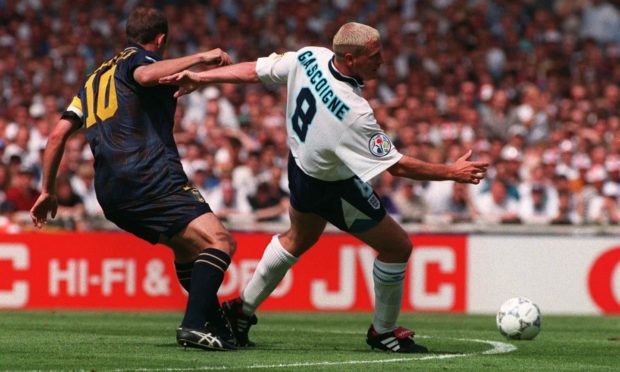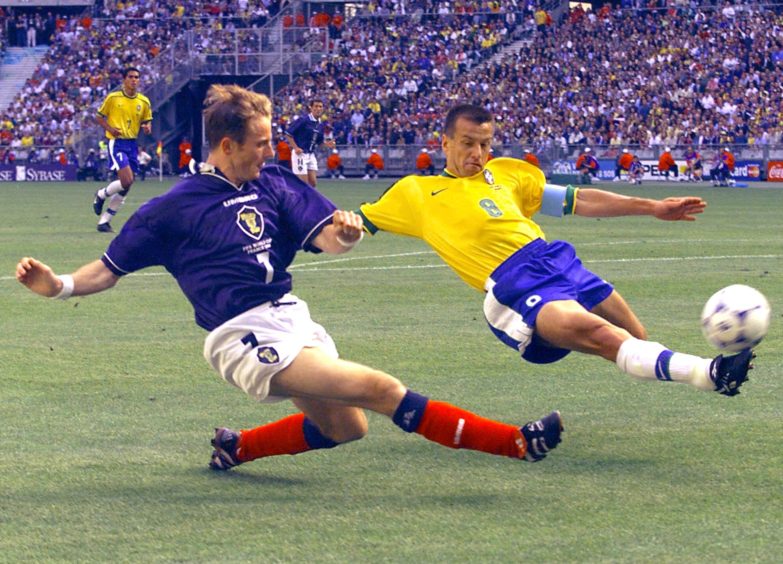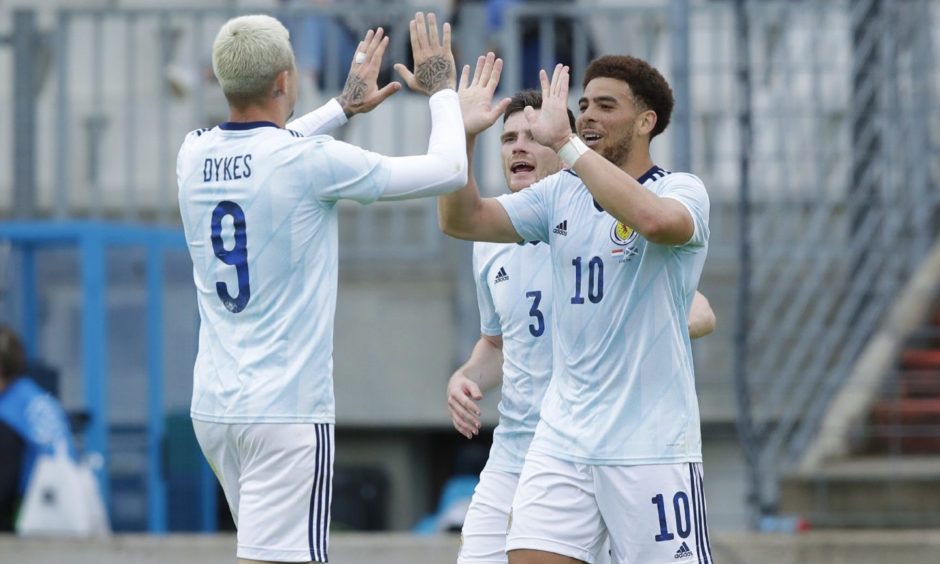When Scotland played England at Euro 96, I was in a teeming pub in the bowels of West Nile Street in Glasgow.
Gordon Durie was scythed down by big Tony Adams and we were awarded a penalty. The place erupted: pints were launched into the air, strangers hugged and wept together, and the singing and the bouncing shook the room.
We were so caught up in celebration that there was general befuddlement when we finally looked back at the screen only to see that England had scored instead. In our revelry we had missed the 90 seconds or so in which Gary McAllister flubbed the penalty, the ball was pumped forward to Paul Gascoigne, and his gorgeous lob over poor Colin Hendry and volley into the bottom corner decided the result. Game over, party cancelled. Very Scottish, as they say.
It was then, anyway. Those were the days when our main complaint was that the national team stubbornly refused to trouble itself with anything beyond the group stages. We had grown complacent about this as a minimum achievement, while always dreaming of a little more. But after the 1998 World Cup in France, it would be more than two decades before we would qualify for another international tournament.
Scotland fans are beggars for good football
Anyone under 30 will barely have a memory of supporting Scotland on the biggest stages: the stubborn, history-proof optimism, the concert of the dismal and delicious, the doomy, ticking clock, the eternally dashed hope. We have instead grown used to investing our affections in some bronzed, slick proxy, often an exotic nation we’ve never visited, chosen because our preferred club side’s former right back nearly made their bench.
Stuck at home with nothing much to do, football has been an insistent and welcome companion for fans
In his great book, Football in Sun and Shadow, the Uruguayan writer Eduardo Galeano captures us: “I’ve finally learned to accept myself for who I am: a beggar for good football. I go about the world, hand outstretched, and in the stadiums I plead: ‘a pretty move, for the love of God.'”
For the past year, stuck at home with nothing much to do, football has been an insistent and welcome companion for fans, allowing us to luxuriate in its drama and global theatres, empty though they have been. Each night it has been possible to tune in to somewhere like the Parc de Princes to watch Mbappe and Neymar, or the Camp Nou to share the closing stages of Messi’s career, or to observe Lewandowski’s record-breaking exploits in the Bundesliga and Erling Haaland’s terrifying maturation at Dortmund, or the San Siro as Inter have battled their way to primacy.
Football matches are close to religious events
Now, at last, there is no need for a proxy. At Hampden on June 14, Scotland will take to the field in the European Championships against the Czech Republic. Then, perfectly, we’re off to Wembley again, to face the alarming talents of Harry Kane and Phil Foden and Jack Grealish. We still expect to cuff them, of course, because they are England and we are Scotland. Lastly, the little lesson that is Croatia, even smaller than us with a population of four million but somehow runners up in the last World Cup, powered by Real Madrid’s mighty Luka Modric.
Each game will be close to a religious event, given added significance and veneration by its modern day rarity. A pagan mass, Galeano calls a football match. Three pagan masses, then, lots of prayers, some great hymns, a sacrifice or two, and perhaps a miracle.
We have our pilgrims, each vying for sainthood. Players from the very top of the tree, from Liverpool and Manchester United and Arsenal and Chelsea, none of them the star of their club, but all solid, gifted, and capable of extraordinary moments.
Where’s the harm in dreaming of just a little more?
Football, in the end, like life, is about these moments, these perfect moments that lodge forever in the personal and collective memory: a pretty move, for the love of God. What more can we ask of Robertson, Tierney, McTominay, McGinn and hopefully young Gilmour, than that they leave us with at least one deathless moment, about which someone can one day write the way Galeano wrote about 1978?
“Archie Gemmill got the ball from his countryman Hartford and kindly asked the Dutch to dance to the tune of a lone bagpiper. Wildschut was the first to fall, his head spinning, at Gemmill’s feet. Then Gemmill left Suurbier reeling in the dust. Krol had it worse: Gemmill put it between his legs. And when the keeper Jongbloed came at him, the Scot lobbed the ball over his head.”
A moment, then. But where’s the harm in dreaming of just a little more?
Chris Deerin is a leading journalist and commentator who heads independent, non-party think tank Reform Scotland



